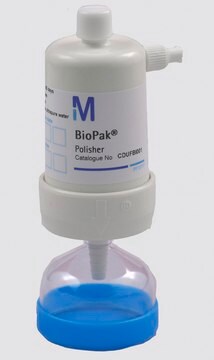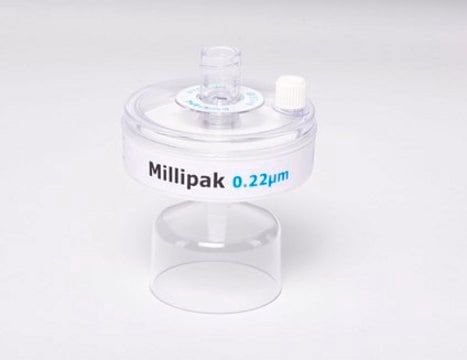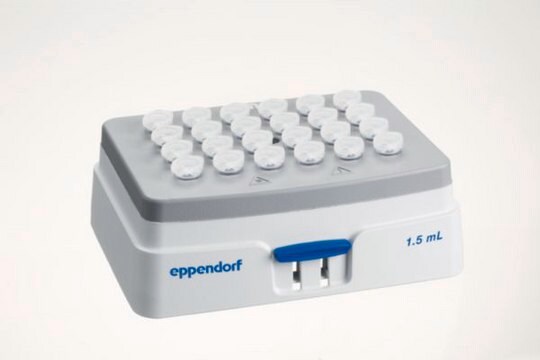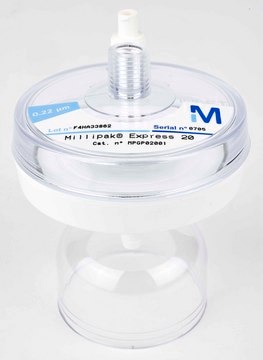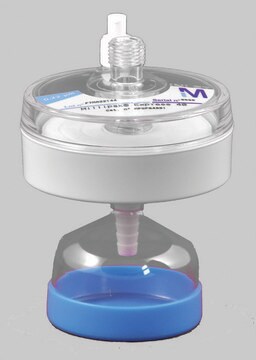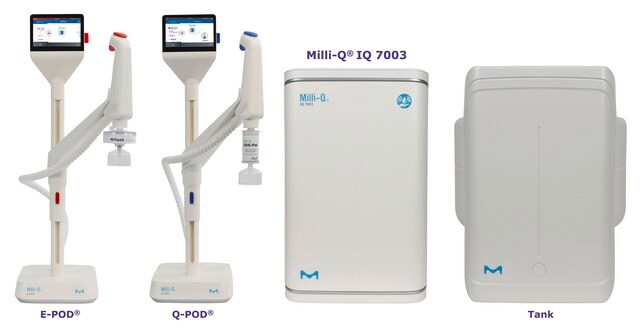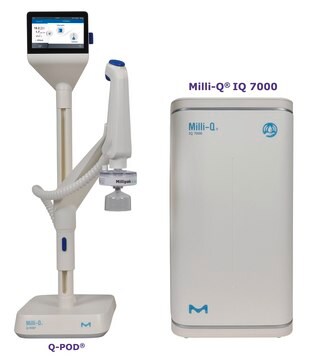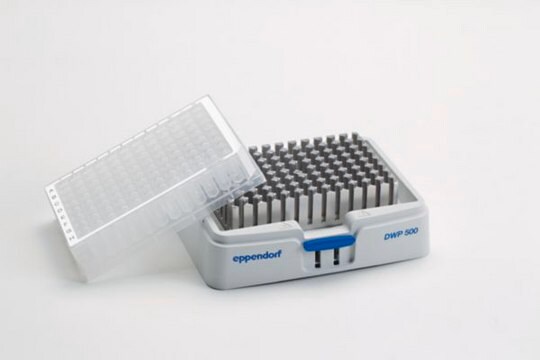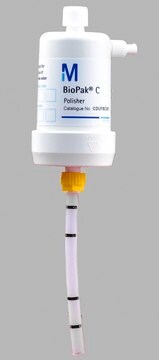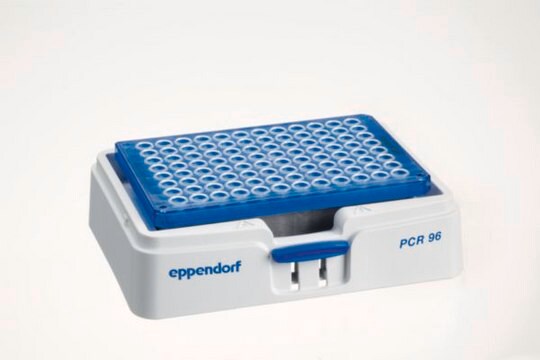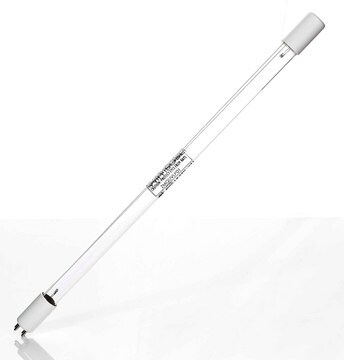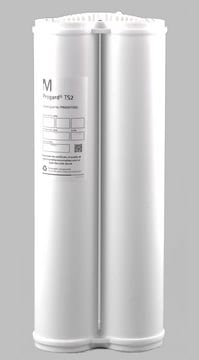CDUFBI0A1
Biopak® Polisher
Ultrafilter for the production of pyrogen-, nuclease-, protease- and bacteria-free water at the point of dispense of Milli-Q® IQ/IX/EQ systems
About This Item
Recommended Products
material
polysulfone filter
Quality Level
packaging
pkg of 1 unit
manufacturer/tradename
BioPak®
technique(s)
ELISA: suitable
PCR: suitable
cell culture | mammalian: suitable
compatibility
for use with Milli-Q® EQ 7000
for use with Milli-Q® EQ 7008
for use with Milli-Q® EQ 7016
for use with Milli-Q® IX 7003
for use with Milli-Q® IX 7005
for use with Milli-Q® IX 7010
for use with Milli-Q® IX 7015
for use with Milli-Q® IQ 7000
for use with Milli-Q® IQ 7003
for use with Milli-Q® IQ 7005
for use with Milli-Q® IQ 7010
for use with Milli-Q® IQ 7015
shipped in
ambient
Looking for similar products? Visit Product Comparison Guide
General description
Application
Biopak® Polisher is recommended for a wide range of laboratory applications where bacteria, pyrogen, nuclease and/or protease levels must be controlled.
This includes small-interfering RNA (siRNA) research, RNA in situ hybridization, microarray development, or studies of protein synthesis machinery.
Features and Benefits
- Minimizes risk of nuclease, protease, pyrogen or bacteria contamination.
- Eliminates the need for toxic agents such as DEPC, therefore improving safety, saving time and reducing costs.
- Bottom-tip is redesigned for a secured installation of the protection bell.
- Easy maintenance: the polisher is easily installed and replaced; does not require sanitization.
- e-Sure tag for RFID connection with POD enables full traceability (data management) and automatic consumable status monitoring on the POD′s touchscreen interface.
Other Notes
Organism Retention: Bacteria and pyrogens
Mode of Action: Ultrafiltration
Application: Cell culture media, molecular biology
Intended Use: Bioburden reduction
Instructions for Use: This item provides water filtered through ultrafiltration hollow fibers. Refer to insert, section "replacement" in the product package.
Storage Statement: Store in dry location.
Disposal Statement: Dispose of in accordance with applicable federal, state and local regulations.
- Pyrogens (endotoxins) < 0.001 EU/mL
- RNases < 1 pg/mL
- DNases < 5 pg/mL
- Protease < 0.15 μg/mL
- Bacteria < 0.01 CFU/mL
Legal Information
also commonly purchased with this product
Storage Class Code
11 - Combustible Solids
Certificates of Analysis (COA)
Search for Certificates of Analysis (COA) by entering the products Lot/Batch Number. Lot and Batch Numbers can be found on a product’s label following the words ‘Lot’ or ‘Batch’.
Already Own This Product?
Find documentation for the products that you have recently purchased in the Document Library.
Customers Also Viewed
Our team of scientists has experience in all areas of research including Life Science, Material Science, Chemical Synthesis, Chromatography, Analytical and many others.
Contact Technical Service